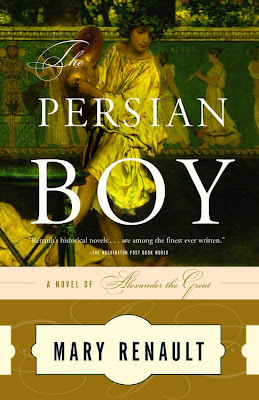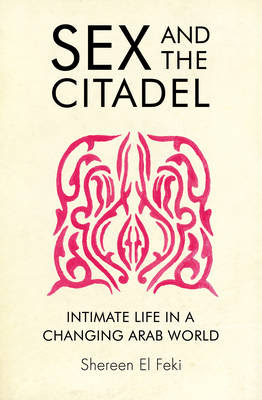At the end of Behind the Beautiful Forevers, Katherine Boo writes of the death of two horses in Annawadi, the Mumbai slum around which Boo's narrative is woven.
The horses, we learn, are kept by one Robert, the "Zebra Man," who also has zebras and other animals in his keeping.
Every summer, on a Sunday in June, an illegal horse racing event is held on the "gleaming Western Express Highway," a highway, one figures from Boo's book, that divides the part of Mumbai nestled close to Sahar International Airport into two worlds: the "over" and the "under" cities.
Robert, a deposed slumlord of the "undercity" of Annawadi, makes money by running his horses in this "overcity" race.
Robert's horses are harnessed to a carriage with a pretty facade. However, behind the illusory "forever" of a fresh coating of paint, the carriage is ill-maintained. So, during the course of the race, the wheels come loose and the horses fall from the overpass to their death.
What follows the death of the rickety, underfed, yet exploited horses, elicits the writer's irony. A small group of animal rights activists rally around the horse-tragedy and demand that Robert be prosecuted. The event garners media coverage as well, and Annawadians, strangers to receiving a driblet of civic concern over the death, mutilation, sickness, wrongful imprisonment, and the terror of a cruel police force, are genuinely "bemused" by the attention paid to the dead horses.
The activists manage to take the case of cruelty and injustice (meted out to animals in Annawadi) to the Mumbai police Commissioner and Robert and his wife are eventually "charged under the Prevention of Cruelty to Animals Act for failing to provide adequate food, water, and shelter to their four-legged charges."
Boo notes that with the promise of a conviction "the forces of justice" will have "finally come to Annawadi."
But, it's just the horses whose death is avenged by the due process of the judiciary.
Karam, his son Abdul, and his daughter, Kehkanesha, long-time Muslim residents of Annawadi, on the other hand, suffer torture in police custody, endless extortion from both the police and petty local officials and pre-trial incarceration, on the basis of fake murder charges leveled at them by Fatima, the "one-legged" enigma and pariah of Annawadi.
Fatima had set herself on fire in a fit of extreme envy against her next-door Muslim neighbors. As Boo unfolds, she begrudged their relative affluence over time and wanted to ruin them. What better way than to set herself on fire and cry "murder?"
Fatima's trick goes overboard as nobody helps douse her third-degree burns and her stint in the local state (free) hospital worsens her condition.
She dies, but not before an official gets her to accuse the Karam's of having set her on fire.
The family of Karam isn't affluent by any long shot; nobody in Annawadi is. But they are scavengers and had come into some money as a result of diligent scavenging on the part of Abdul of the right kind of trash--plastic and metal. In the market of global capitalism, the price of plastic and metal trash had soared.
The Fatima's next door, which is really the other side of a think wall separating one shanty from another, could not reap the harvest of this market.
While swift justice befalls the dead horses, the lives of Annawadi's human denizens get emptied by the day of any hope for justice whether earthly or otherwise.
The dead and mutilated bodies of two of the scavenging children, Kalu and Sanjay, remain less than mere statistics, because the police don't keep records of the poor dead in the city of Mumbai. They are to be dispensed like trash.
What goes through the minds of the Annawadi boys like Abdul, upon seeing the spectacle of justice meted out to the horses of Annawadi is expressed in frilless prose by Boo:
They weren't thinking about the uninvestigated deaths of Kalu and Sanjay. Annawadi boys broadly accepted the basic truths: that in a modernizing, increasingly prosperous city, their lives were embarrassments best confined to small spaces, and their deaths would matter not at all. The boys were simply puzzled by the fuss, since they considered Robert's horses the luckiest and most lovingly tended creatures in the slum.
Yet, as Boo implies in her book, the Annawadians too can, if they wanted to, avenge the deaths and injustices that rain on them on a daily basis. Their particular enemy is the local police. The police of modern India isn't a state infrastructure that provides protection to all Indian citizens; it's a private army whose services have to be bought by those who can afford to.
Boo's modern, or as she insists on the label "globalized," India, is a privatized nation much like modern-day Haiti is. The poor of Annawadi, like the poor of Haiti,can't buy the services of the police, the local government or the judiciary, but they can resist the tyranny of the system through unity.
The horses got justice because the activists persisted through unity. Disunity is the bane, one feels of Annawadians. In the "Author's Note" segment of the book, Boo ponders on why the slums of Annawadi-like places in India don't look the insurrectional video game Metal Slug 3 (there is a video parlor run by a Tamil man in Annawadi; the Annawadi boys play games like Metal Slug 3 regularly). Boo's answer is disunity and at the core of Behind the Beautiful Forevers is the telling of the story of this abysmal disunity.
Here is a sampling of that core:
At Annawadi, everyone had a wrong he wanted righted: the water shortage, brutal for three months now;the quashing of voter applications of the election office; the worthlessness of the government schools; the fly-by-night subcontractors who ran off with their laborer's pay. Abdul was one of the many residents who were angry at the police. Elaborate fantasies about blowing up the Sahar Police Station had become the secret comfort of his nighttimes. But the slumdwellers rarely got mad together [...] Instead powerless individuals blamed other powerless individuals for what they lacked. Sometimes they tried to destroy one another [...] In the age of global market capitalism, hopes and grievances were narrowly conceived, which blunted a sense of common predicament. Poor people didn't unite; they competed ferociously amongst themselves for gains as slender as they were provisional. And this undercity strife createst only the faintest ripples in the fabric of society at large. The gates of the rich, occasionally rattled, remained unbreached. The politicians held forth on the middle class.
I think
Behind the Beautiful Forevers is a book on contemporary India, not simply a book on Indian poverty.










